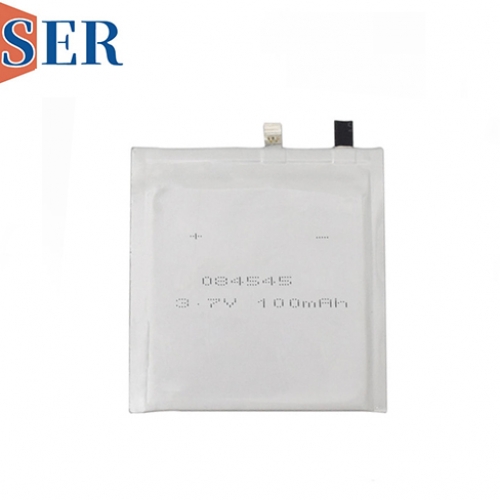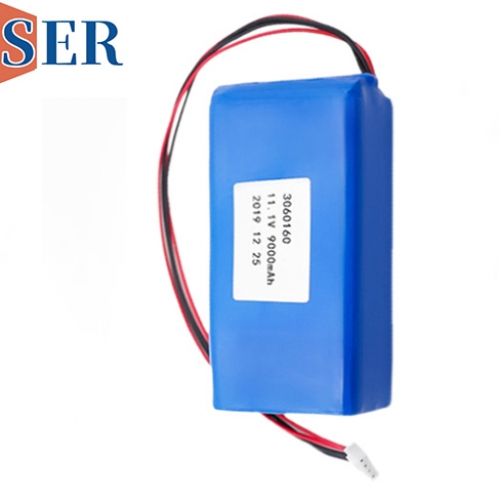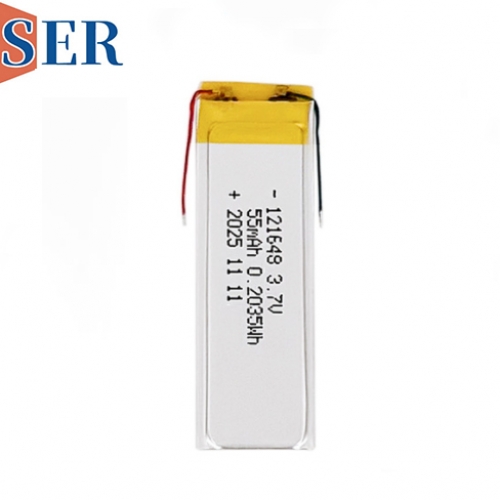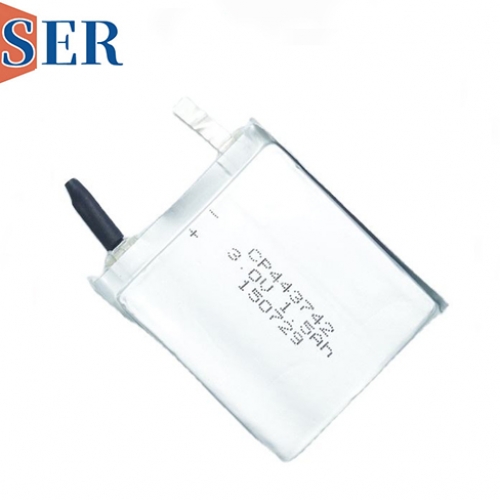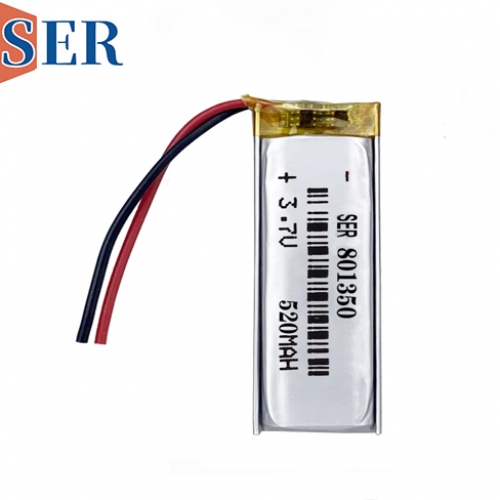SER Brand Customizable High-Capacity Soft-Pack LiMNO2 Batteries for Active Electronic Tags
SER Brand Customizable High-Capacity Soft-Pack LiMNO2 Batteries for Active Electronic Tags
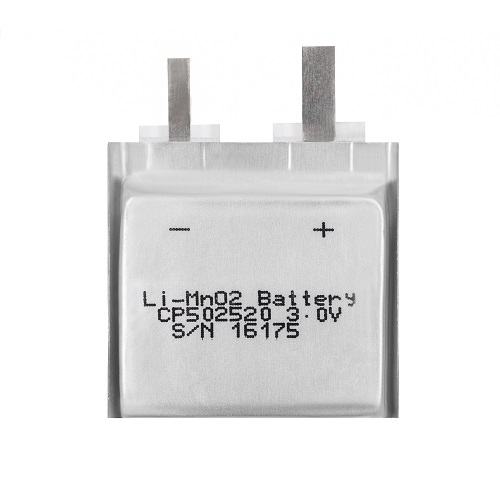
Abstract
The rapid advancement of electronic technology, particularly in the Internet of Things (IoT) and smart device sectors, has spurred the demand for efficient, reliable, and environmentally friendly power sources. SER brand's customizable soft-pack lithium batteries, specifically the CP153030 and CP352440 models, are designed to meet these demands. These 3.0V lithium manganese dioxide (Li-MnO2) primary batteries offer high capacity, large current discharge capabilities, and are packaged in flexible, eco-friendly square soft-pack designs. This article explores the technical features, advantages, customization options, environmental benefits, and applications of these batteries, with a focus on their use in active electronic tags.
1. Introduction
In today's interconnected world, the proliferation of electronic devices, from wearable technology to industrial sensors, has necessitated the development of batteries that can deliver consistent power in compact, lightweight, and flexible forms. Soft-pack lithium batteries have emerged as a leading solution due to their high energy density, stable performance, and adaptability to various shapes and sizes. SER brand, a renowned manufacturer in the battery industry, offers a range of customizable soft-pack lithium batteries, including the CP153030 and CP352440 models, tailored for applications requiring high capacity and large current outputs, such as active electronic tags.
2. Overview of SER CP153030 and CP352440 Soft-Pack LiMNO2 Batteries
The CP153030 and CP352440 are square-shaped soft-pack lithium manganese dioxide batteries designed for one-time use (primary batteries). With a nominal voltage of 3.0V, these batteries are characterized by their high energy density, excellent discharge performance, and environmental sustainability.
CP153030: Measuring 15mm in width, 30mm in length, and 3.0mm in thickness, the CP153030 is compact yet powerful, making it suitable for space-constrained applications like active RFID tags, smart cards, and portable medical devices.
CP352440: With dimensions of 35mm (width) x 24mm (length) x 4.0mm (thickness), the CP352440 offers a higher capacity and is capable of supporting more demanding power requirements, such as industrial sensors, asset tracking systems, and advanced IoT devices.
3. Technical Specifications
3.1. Battery Chemistry
Both the CP153030 and CP352440 utilize lithium manganese dioxide (Li-MnO2) chemistry, known for its high energy density, stable discharge voltage, and good safety profile. Li-MnO2 batteries are non-rechargeable and are widely used in applications where long shelf life, high energy output, and reliability are crucial.
3.2. Nominal Voltage and Capacity
CP153030: Features a nominal voltage of 3.0V and a typical capacity ranging from [insert capacity range] mAh, depending on the specific design and discharge rate.
CP352440: Also operates at 3.0V but offers a higher typical capacity of [insert capacity range] mAh, providing extended operational life for power-intensive applications.
3.3. Discharge Characteristics
These batteries are engineered to provide stable voltage output over a wide range of discharge currents. The CP153030 and CP352440 can handle high pulse currents, making them suitable for applications that require intermittent high-power bursts, such as active electronic tags that transmit data periodically.
3.4. Operating Temperature Range
Designed to operate within a temperature range of [insert temperature range], these batteries ensure reliable performance in various environmental conditions, from cold storage facilities to hot industrial environments.
3.5. Shelf Life
SER's soft-pack lithium batteries boast an impressive shelf life of up to [insert shelf life] years when stored under recommended conditions, thanks to their stable chemistry and advanced packaging.
4. Customization Options
One of the standout features of SER's soft-pack lithium batteries is their customizability. The company offers a range of options to tailor the batteries to specific application requirements:
4.1. Shape and Size Customization
While the CP153030 and CP352440 are standard models, SER can produce batteries in custom shapes and sizes to fit unique device designs. This flexibility allows manufacturers to optimize space utilization and enhance the overall performance of their products.
4.2. Electrical Performance Tuning
SER can adjust the battery's capacity, discharge rate, and other electrical parameters to meet specific power requirements. This ensures that the battery provides the optimal balance between energy density, power output, and operational life for the intended application.
4.3. Packaging and Labeling
Custom packaging and labeling options are available to meet branding and regulatory requirements. This includes custom colors, logos, and safety markings to ensure compliance with international standards.
5. Environmental Benefits
In an era where environmental sustainability is paramount, SER's soft-pack lithium batteries offer several eco-friendly advantages:
5.1. Non-Toxic Materials
Li-MnO2 batteries do not contain heavy metals such as lead, mercury, or cadmium, which are commonly found in other battery types. This reduces the environmental impact during production, use, and disposal.
5.2. Recyclability
SER's batteries are designed with recyclability in mind. The materials used in their construction can be recovered and reused, minimizing waste and conserving natural resources.
5.3. Energy Efficiency
The high energy density of these batteries means that less material is required to store the same amount of energy compared to other battery technologies. This contributes to lower overall energy consumption during production and transportation.
6. Applications in Active Electronic Tags
Active electronic tags, used in a wide range of applications including asset tracking, inventory management, and logistics, require reliable and long-lasting power sources. SER's CP153030 and CP352440 batteries are ideally suited for these applications due to their following characteristics:
6.1. Long Operational Life
The high capacity and stable discharge performance of these batteries ensure that active electronic tags can operate for extended periods without the need for frequent battery replacements. This reduces maintenance costs and improves operational efficiency.
6.2. High Pulse Current Capability
Active tags often need to transmit data periodically, which requires high pulse currents. The CP153030 and CP352440 batteries can handle these demands, ensuring reliable communication even in challenging environments.
6.3. Compact and Lightweight Design
The soft-pack design of these batteries allows for integration into compact and lightweight electronic tags, making them suitable for applications where size and weight are critical factors.
6.4. Environmental Robustness
The wide operating temperature range and stable performance of SER's batteries make them suitable for use in diverse environmental conditions, ensuring reliable operation in both indoor and outdoor settings.
7. Comparison with Other Battery Technologies
When compared to other battery technologies, such as alkaline, nickel-metal hydride (NiMH), and lithium-ion (Li-ion), SER's soft-pack lithium batteries offer several distinct advantages:
7.1. Energy Density
Li-MnO2 batteries have a higher energy density than alkaline and NiMH batteries, meaning they can store more energy in a smaller and lighter package. This makes them ideal for applications where space and weight are at a premium.
7.2. Shelf Life
Unlike rechargeable batteries, which can lose capacity over time even when not in use, primary lithium batteries have a much longer shelf life. This makes them suitable for applications where batteries may be stored for extended periods before use.
7.3. Discharge Performance
Li-MnO2 batteries provide a more stable discharge voltage compared to alkaline batteries, which can experience significant voltage drop as they discharge. This ensures consistent performance throughout the battery's operational life.
7.4. Environmental Impact
While Li-ion batteries are rechargeable and offer high energy densities, they contain flammable electrolytes and can pose safety risks if not handled properly. In contrast, Li-MnO2 batteries are non-rechargeable but offer a safer and more environmentally friendly alternative.
8. Challenges and Considerations
Despite their many advantages, there are some challenges and considerations associated with the use of soft-pack lithium batteries:
8.1. Non-Rechargeability
As primary batteries, the CP153030 and CP352440 cannot be recharged once discharged. This means that they must be replaced when their energy is depleted, which may not be feasible in some applications where battery replacement is difficult or costly.
8.2. Temperature Sensitivity
While these batteries are designed to operate within a wide temperature range, extreme temperatures can affect their performance and lifespan. It is important to ensure that they are used within their specified temperature limits to maintain optimal performance.
8.3. Safety Precautions
Although Li-MnO2 batteries are generally safe, they should be handled with care to avoid short-circuiting, overheating, or physical damage. Proper storage and transportation guidelines should be followed to ensure safety.
9. Future Trends and Innovations
As the demand for advanced electronic devices continues to grow, so too will the need for innovative battery solutions. SER is committed to staying at the forefront of battery technology by investing in research and development to improve battery performance, safety, and environmental sustainability. Future trends may include:
9.1. Higher Energy Densities
Ongoing research aims to increase the energy density of lithium batteries, allowing for even smaller and lighter batteries with longer operational lives.
9.2. Enhanced Safety Features
Innovations in battery design and materials may lead to improved safety features, such as built-in protection circuits and non-flammable electrolytes.
9.3. Sustainable Manufacturing
As environmental concerns become more pressing, SER and other battery manufacturers are exploring sustainable manufacturing practices to reduce their carbon footprint and minimize waste.
9.4. Integration with Smart Technologies
The integration of batteries with smart technologies, such as battery management systems (BMS), can optimize battery performance, extend lifespan, and provide real-time monitoring of battery status.
10. Case Studies: SER Batteries in Active Electronic Tags
To illustrate the practical applications of SER's soft-pack lithium batteries, let's consider a few case studies:
10.1. Asset Tracking in Logistics
A logistics company uses active electronic tags equipped with SER's CP352440 batteries to track high-value assets during transportation. The high capacity and stable discharge performance of the batteries ensure that the tags can transmit location and status data reliably over extended periods, reducing the need for frequent battery replacements and improving operational efficiency.
10.2. Smart Inventory Management
A retail chain deploys active RFID tags powered by SER's CP153030 batteries to manage inventory in real-time. The compact size and lightweight design of the batteries allow for easy integration into the tags, while their high pulse current capability ensures reliable communication with the inventory management system.
10.3. Environmental Monitoring
An environmental agency uses active sensors equipped with SER's soft-pack lithium batteries to monitor air quality, water levels, and other environmental parameters. The batteries' wide operating temperature range and stable performance make them suitable for use in diverse environmental conditions, ensuring accurate and reliable data collection.
11. Conclusion
SER brand's CP153030 and CP352440 soft-pack lithium batteries represent a significant advancement in battery technology, offering high capacity, large current discharge capabilities, and environmental sustainability. Their customizable design makes them ideal for a wide range of applications, particularly for active electronic tags where reliable and long-lasting power is essential. As the electronic industry continues to evolve, SER remains committed to providing innovative battery solutions that meet the ever-changing needs of its customers.
By choosing SER's soft-pack lithium batteries, manufacturers can benefit from superior performance, flexibility, and environmental responsibility, ensuring that their products remain competitive in the global market. Whether for consumer electronics, industrial applications, or environmental monitoring, SER's batteries are poised to power the future of innovation, driving progress towards a more connected and sustainable world.

